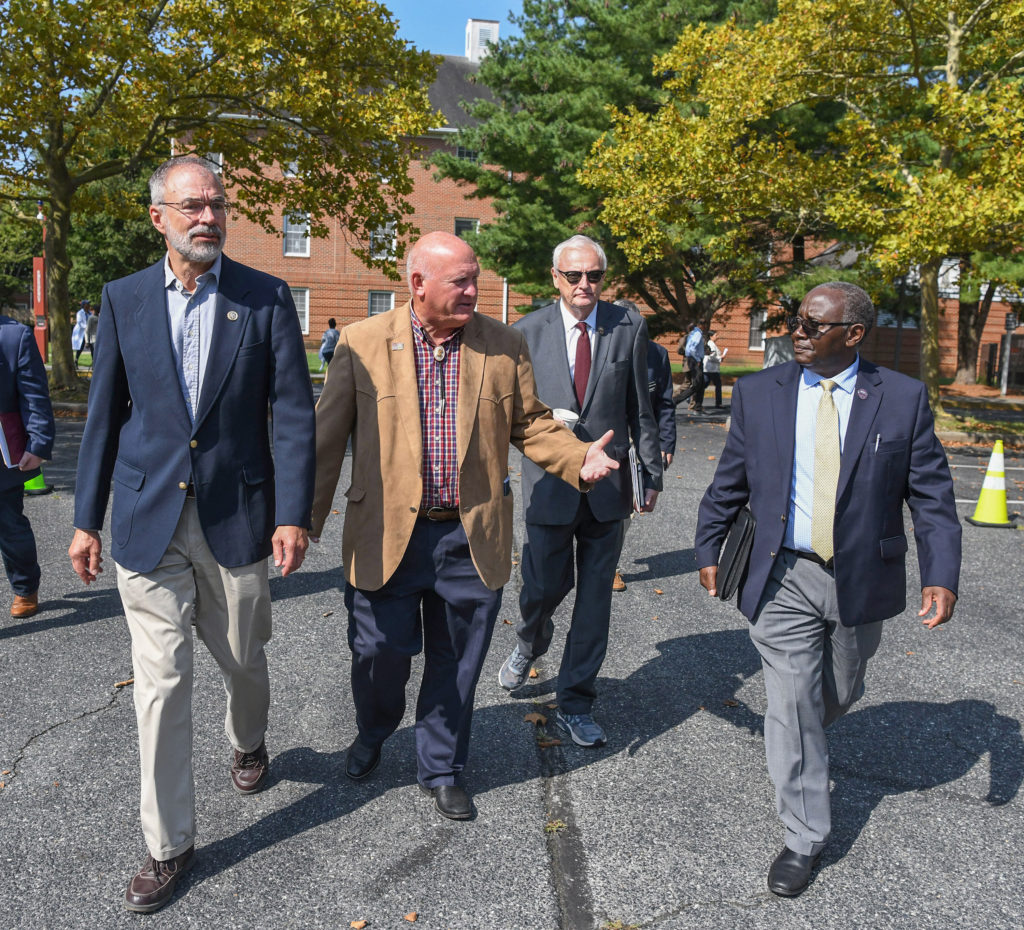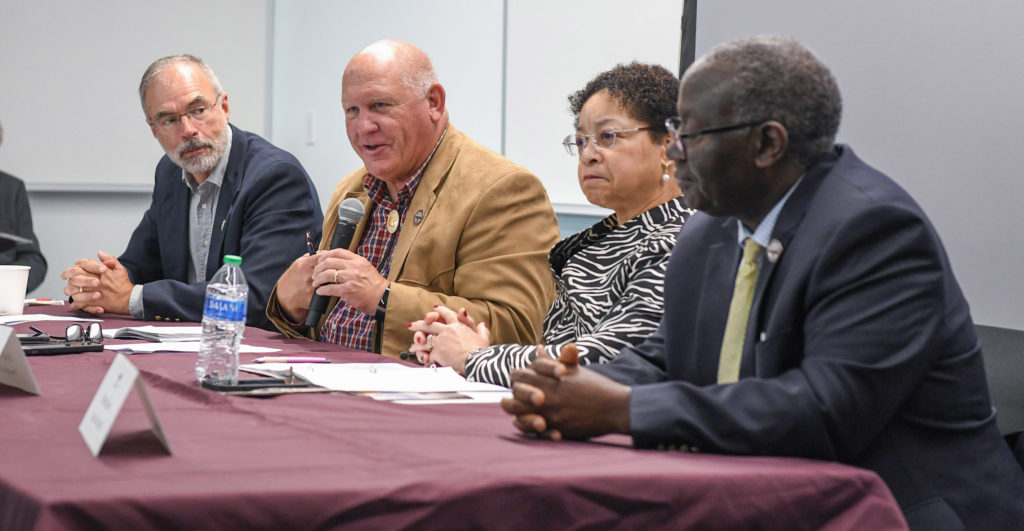
A listening session was held Friday, Aug. 11, at the University of Maryland Eastern Shore to provide feedback directly from agricultural stakeholders in Maryland to key members of the House Committee on Agriculture as it drafts the 2023 Farm Bill.
Congressman Andy Harris M.D., who serves as chairman of the House Appropriations Subcommittee on Agriculture, Rural Development, Food and Drug Administration, and Related Agencies, visited and toured UMES agricultural facilities, part of District 1 that he represents.

Lower Eastern Shore farmers, watermen, representatives of the poultry industry, and local and state officials provided feedback on the legislation to Chairman of the House Committee on Agriculture Glenn “GT” Thompson.
“Listening to the concerns of America’s producers and consumers is essential as we draft a highly effective Farm Bill. Thank you to Dr. Harris for bringing together this group of agricultural stakeholders to discuss what’s working and what needs to be tweaked in this year’s Farm Bill,” Thompson said.
U.S. agricultural and food policy is set through the legislative process that occurs approximately every five years, known as the Farm Bill. The current farm law, the Agriculture Improvement Act of 2018 (2018 Farm Act), was signed Dec. 20, 2018, and remains in place through 2023, with some provisions beyond.
“The federal Farm Bill is a vital piece of legislation for America’s farmers and it’s a milestone for land-grant colleges, especially 1890 land grants like UMES. We conduct research vital to crop management. We help local farmers address global challenges like climate change. And we help communities understand the importance of agriculture to our nation’s food supply and local economic development,” said UMES President, Dr. Heidi M. Anderson. “But this year’s legislation is also crucial because it provides an opportunity to address a funding inequity that has plagued HBCUs for decades. All we are asking is to treat us as you do predominantly white institutions in the bill’s funding formula. Right that wrong and this country will reap the benefits for years to come.”
Prior to the listening session, dignitaries toured agricultural areas on the UMES campus, including research laboratories and field experiments, where they heard about plant breeding for disease resistance in grapevines; food safety and microbiology; integrated pest management; and hemp cultivation.
“It is always a privilege to showcase the important research and extension activities undertaken by our faculty and students. This work addresses critical issues that impinge on our communities such as securing our food supply, and safeguarding our natural resources,” said Moses T. Kairo, professor and dean of the School of Agricultural and Natural Sciences at UMES. “Without the resources provided through the Farm Bill, UMES would not be able to carry out this important work for the betterment of the state and beyond.”
“Agriculture is both the economic and cultural backbone of the First District, and it is vital we hear firsthand from our local farmers and agricultural stakeholders who will be most affected by the Farm Bill,” Harris said.
Parts of this press release were contributed by the offices of Congressmen Thompson and Harris.
For more information about the programs at the School of Agriculture and Natural Sciences, go to the UMES SANS website.

